Namibia: Seven Seas Ldz Project
Understanding our relationship with nature and why we need to become more sustainable is one of the most crucial things that our generation is facing nowadays. In Luderitz, Namibia, Giel du Tout, founder of the Seven Seas Ldz Project, is looking to the past to help us into the future. Many of his sustainability projects can also help bluewater sailors and his long-term support of the cruising community means a visit to Luderitz would not be complete without meeting Giel and discovering more about his important research.
Published 1 year ago, updated 12 months ago
The Seven Seas Ldz Project is based in Luderitz Namibia – a program of sustainable development research. One of the foundation stones of the Seven Seas Ldz project is the famous quote from Albert Einstein: “If you want to know the future, look in the past.” Enthusiastic founder, Giel du Tout, is a keen sailor and supporter of blue water cruisers visiting Namibia. Not only is he working on a number of vital projects, but he also has taken time and effort to ease the entry procedures for sailors coming to Luderitz.
Giel started a career in electronic communications career in 1983 in Table Bay Harbour, Cape Town in South Africa. At weekends he worked as a “deck-rat” in the local Yacht club, cleaning yachts and assisting with repairs in exchange for a sail. When he got his radio ham licence in 1986 he began encouraging blue water sailors to first sail up the West coast of Southern Africa to the Port of Lüderitz in Namibia before crossing the pond (making for a nicer sail then following the direct path from Cape Town to St Helena).
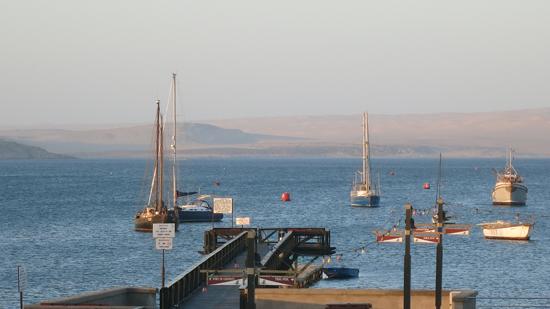

At that time there were zero mooring facilities for visiting yachts in Ludertiz and out of his own pocket, and with the assistance of members of the Yacht club and fishing companies, Giel managed to put close to 20 moorings in the water in addition to the few that were already there. A new harbour development and plans to relocate the Lüderitz Yacht club put a stop to these improvements for a while, however Giel never gave up his support of the blue water cruising community.
He took the initiative to contact all local authorities and establish a common communication platform to streamline the clearing in and out process for the Port of Luderitz. Two forms he developed (available on Noonsite) have been accepted by all the local Authorities in Ludertiz to assist with pre-arrival notification and may in the future become the standard for the whole of Namibia.
Having been involved in sustainable development research for almost 25 years, Giel tells us about the main projects that Seven Seas are currently working on:
1. Improve your lifestyle by doing things little bit different.
Why continuously buy new fresh produce when one can ferment basically anything and store it for long periods on a yacht/boat/house? Change cabbage into delicious sauerkraut for instance. All you need are glass jars and salt with fresh water (and healthy probiotics come for free with it). A healthy stomach means a healthy body. It took us three years to meet the original manufacturers and work with them to produce pots of high quality using food grade aluminium. They cook in half the time and with 50% less electricity or gas or wood fire.
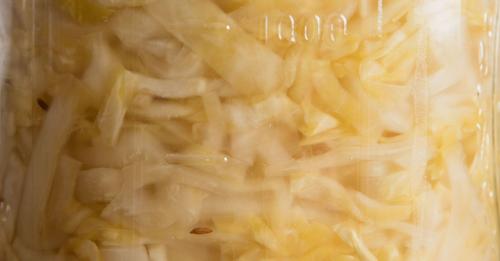

2. Alternative plastic recycling.
A. Learn to crochet and make useful items from plastics, like the dreadful shopping bag—even outlawed, it’s the most easy way to carry goods from shops and even if they charge for it, people continuously use them. With assistance from somebody abroad, we managed to train a women’s group in Namibia on how to crochet with plastics.
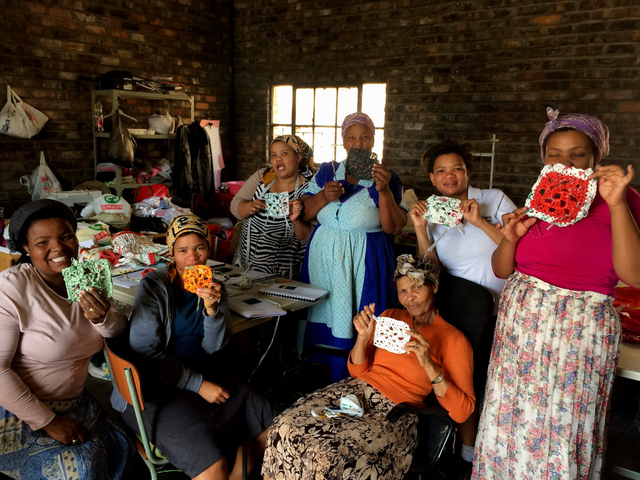

B. Built clay kilns to burn plastics while using the heat to produce warm water for all sorts of usage. If plastics burn at 750 degree Celsius and more, most harmful gasses are totally eliminated. We have a full range of instruments to test and do lots of experiments. Building an oven with clay saves firewood and contains heat much better.
C. While we did this research, why make an open fire on the beach when one can dig what is known as a Dakota stove and use less wood and have a nice hot fire without smoke. When done, fill up the hole. The coals will turn into healthy carbon for the beach mangroves.
D. I am now busy looking into the production of slake lime from seashells using plastic waste fuelling a kiln. Why import expensive cement which btw, is one of the industries releasing millions of tons of CO2.
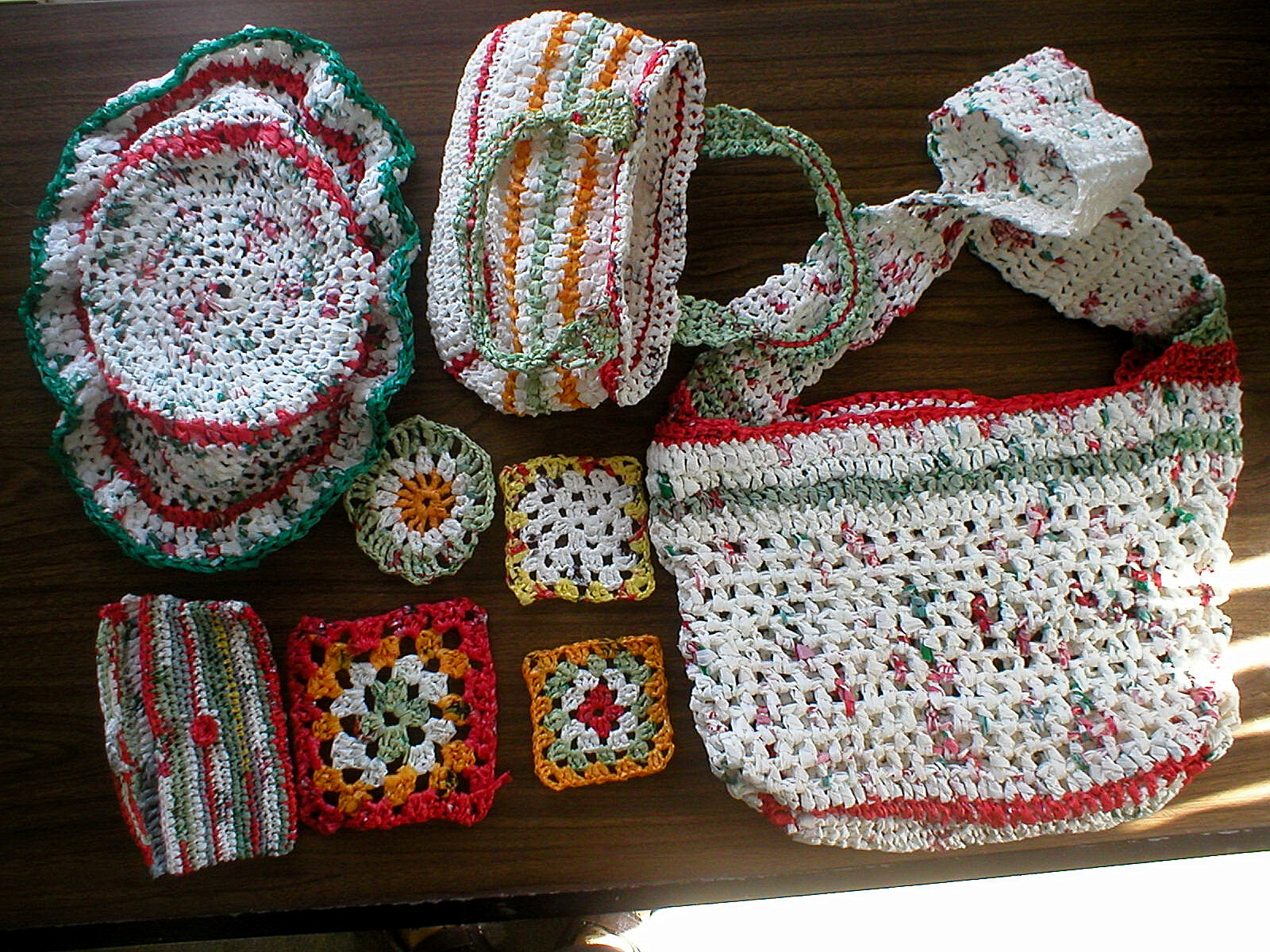

3. Alternative tools for yacht repairs, especially in emergencies.
We do not see the usage of air tools in boat yards, but dangerous dust from power tools is everywhere. Climbing in a hazmat suit will protect you, but that dust blows all over the place. Air tools use water. Just place a large pvc canvas under the boat to collect the water and through a small pump it can be recycled through the tools again. In case of an emergency, electric tools do not like water. Hook up an air grinder or drill to a diving cylinder and one can even do underwater repairs or fit a board over a hole in the hull, using self-drill screws.
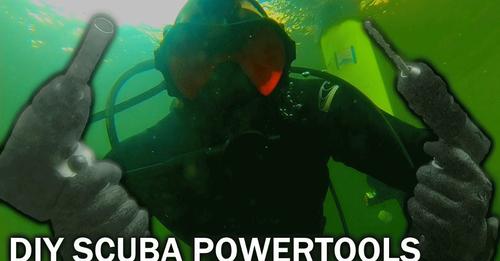

4. Biogas and Fertilizer
We see lots and lots of yachts stopping over at remote Islands, purchasing fresh produce. But what can we give back?
Most soils on Islands are poor, thus expensive fertilizer needs to be imported. Why not use an anaerobic digester to turn all organic waste, inclusive animal waste, into not only biogas for all sorts of usage from gas stove to gas lights and even powering a gen-set, but it produce ultra-rich liquid fertilizer. Our testing showed us that 25 litres of effluent equalled a 50 kg bag of KAN. Now one can compare price wise. One is shipped across the pond, and one is produced locally.
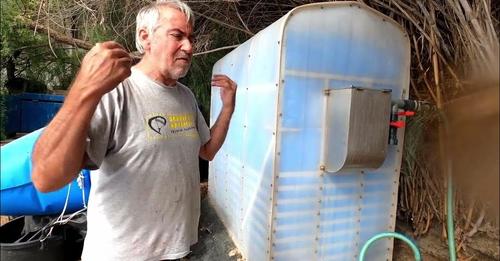

5. We are working with various manufacturers abroad to put together educational material for children on yachts based on sustainable development. This is a project in progress.
Find out more about all of Giel’s projects at https://www.facebook.com/SevenseasNamibia/
Giel is a helpful contact for visiting yachts and can assist with local information for Luderitz as well as guidance on provisioning. His Facebook page has a ton of information about fermentation of fresh produce to keep onboard. Giel can also assist with weather updates for Luderitz and the local area, which has a unique weather pattern, and local tours and sites of interest.
Giel can be contacted at: sevenseasldz@gmail.com
Related Links:
- In this YouTube video Giel explains how a biogas digester works to produce gas and fertilizer.
- In this YouTube video Giel tests air tools underwater.
- Sailors for Sustainability
- Being Self Sufficient on your yacht – by Yachting World
- Fresh from the Garden on a Boat – by the Boat Galley
- Fermenting on a Boat – Yacht Kate
…………………………………
The opinions expressed in this article are the author’s own and do not reflect the view of Noonsite.com or World Cruising.
…………………………………
Find out all news, reports, links and comments posted on Noonsite, plus cruising information from around the world, by subscribing to our FREE monthly newsletter. Go to https://www.noonsite.com/newsletter/.
Related to the following Cruising Resources: Citizen Science, Cruising Impact, Environment, General, On Board Garbage



